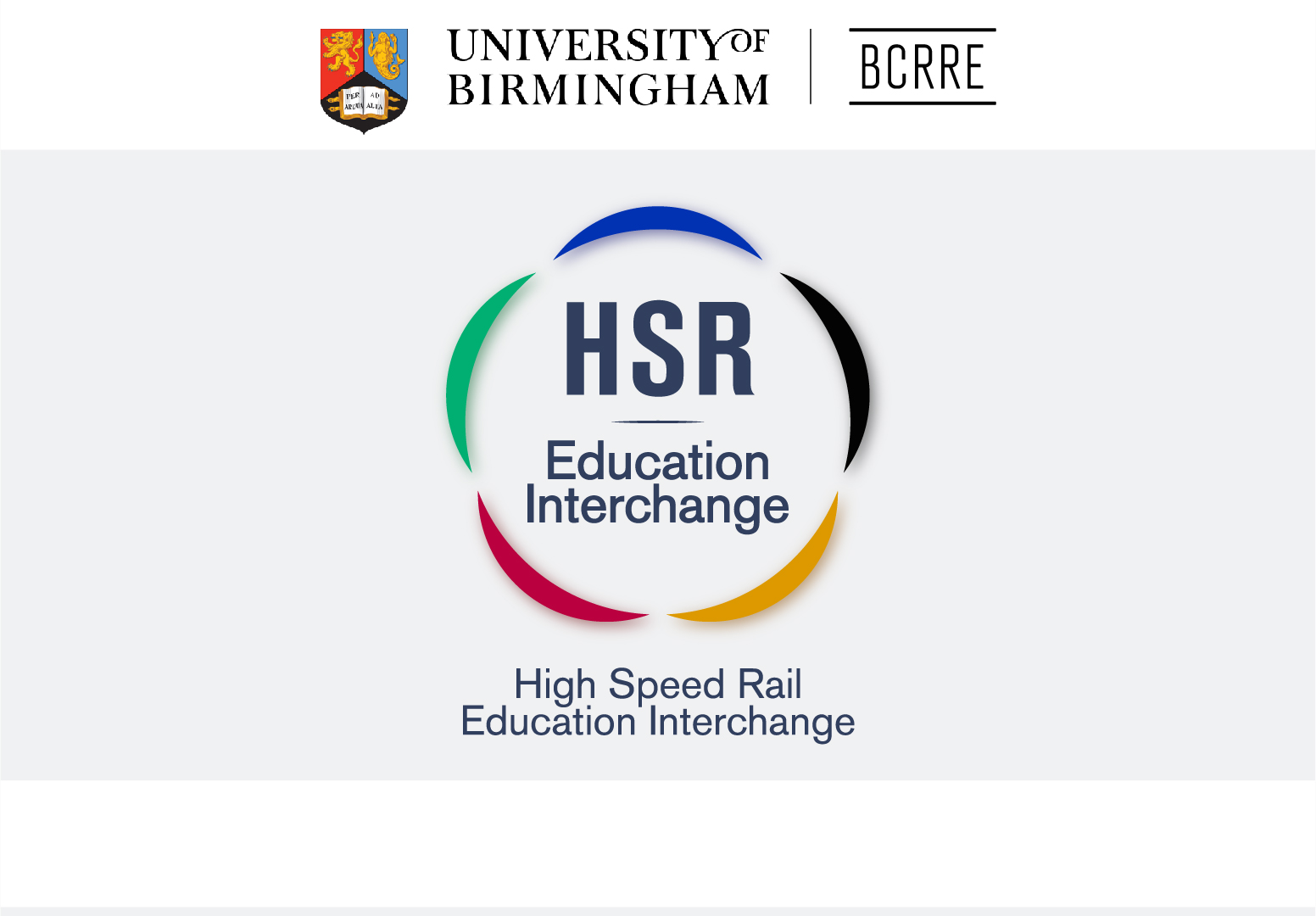
Dr Heather Steele talks about High Speed Rail and the importance of Education and Research and our upcoming event.
High Speed Rail (HSR) has come to play a vital role in national and international transport. It directly competes with alternative modes including aviation and road; offers socio-economic and environmental benefits through time-savings, safety, comfort, reduction of congestion and the decarbonisation of transport; and enables both regional and national economic development (Almujibah & Preston, 2019)
To meet future transport visions the sector will have to overcome a number of significant challenges, particularly in terms of cost and human resources, to ensure continued economic, social and environmental sustainability. We believe that collaboration with research and education is essential to unlock the potential of sustainable HSR and we invite academics, railway engineers and managers to join the discussion at the High Speed Rail: Education Interchange conference in December 2020.
According to the latest UIC figures there are over 50,000 km of high-speed lines worldwide, with systems in operation or development in 45 countries (2020). The industry has seen phenomenal growth in recent years, especially in China whose network currently accounts for ~70% of the global total. Although conventional rail still dominates in terms of total railway passenger km, HSR has rapidly increased its share of passenger activity, as shown in Table 1. With new projects, such as HS2 (GB), the Mumbai-Ahmedabad corridor (India), and Tehran–Qom–Isfahan HSR (Iran) underway, this trend will no-doubt accelerate.

To ensure that HSR can meet future passenger expectations and transport demands in a sustainable way, economically, socially and environmentally, the sector will need to address a number of challenges: new projects are expected to be delivered in a timely, cost-effective manner, to meet decarbonisation and net-zero carbon targets, to incorporate new and emerging technologies and to be responsive to customer needs and yet unknown future demands. They must achieve this against a backdrop of globalisation, urbanisation, demographic and behavioural changes and competition from transport modes that only exist on the drawing board. HSR will have to embrace digitalisation and respond to increasing awareness of the impact of climate change. Reporting on sustainability factors will be fundamental to track HSR performance in these areas and ensure accountability (Azzouz & Jack, 2020).
Although these challenges do not solely apply to HSR, overcoming them in the specific context of HSR will need careful consideration of the unique complexities and needs of the sector, including technical, financial, socio-economic and political issues. It would be remiss not to mention the impact of Covid-19, which adds a new dimension in terms of a need to incorporate resilience, adaptability and innovation in business operations going forward, for all industries. The impact on travel is still emerging but will be significant and multifaceted: social distancing measures, travel caution, the collapse of air travel, the predicted rise in remote working, national economic impacts and other business challenges in the so-called ‘new normal’ will influence operations far into the future.
We at BCRRE believe that collaboration between the industry and education sectors will ultimately pave the way to address many of these challenges and thus ensure the continued development and successful delivery of HSR. As an expanding discipline, HSR presents a wide range of areas in which researchers can innovate and directly influence future transport. Meanwhile, to support the rapid expansion of networks, there is a need for skilled workers from all disciplines who understand the context and unique issues faced by the sector. Specialist education and training, tailored to the requirements of HSR, will develop an expert workforce for timely project delivery, addressing issues around staffing sustainability, skills training, digitalisation, equality diversity and inclusion, and internationalisation.
The High Speed Rail: Education Interchange conference, taking place on the 14th and 15th December 2020, will act as a forum to bring together international experts (in-person or digitally as circumstances allow) to share their research, ideas, views and best practice through an open platform for collaboration. Drawing on the progress made at ISRET 2018 in identifying education and training challenges, best practice and international collaborative opportunities within the metro and mainline rail industries, we invite delegates to explore how we can tailor education and research to the unique needs of the HSR sector, not only within the UK but globally. Register your place here.

References
- Almujibah, H. & Preston, J., 2019. The Total Social Costs of Constructing and Operating a High-Speed Rail Line Using a Case Study of the Riyadh-Dammam Corridor, Saudi Arabia. Frontiers in Built Environment, 5(79), pp. 1-18.
- Azzouz, L. & Jack, A., 2020. Benchmarking the sustainability reporting of high-speed railways (HSRs): Towards a state-of-the-art benchmarking and reporting framework for HSRs. Journal of Cleaner Production, Volume 250, pp. 1-20.
- UIC, 2017. Railway Handbook 2017: Energy Consumption and C02 Emissions, Paris: UIC.
- UIC, 2020. High speed lines in the world. [Online]
Available at: https://uic.org/IMG/pdf/20200227_high_speed_lines_in_the_world.pdf
[Accessed 31 March 2020].
